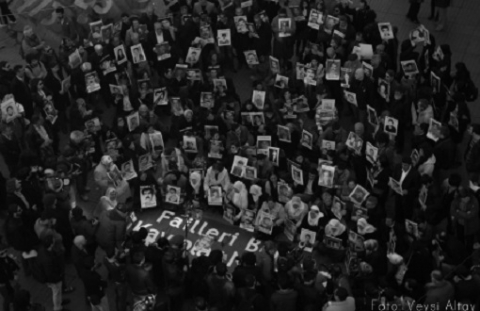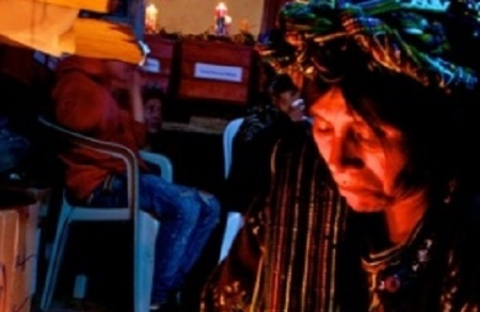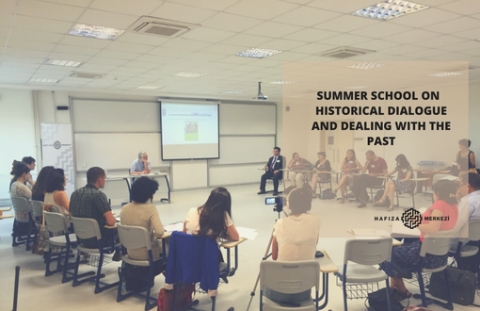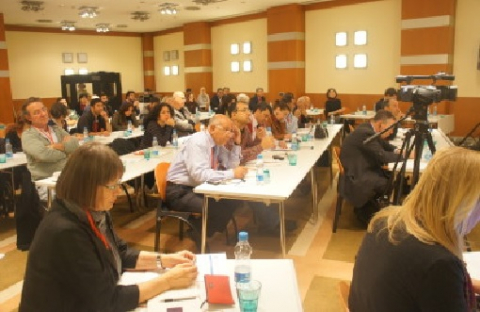
Ingrained history of silence, denial and an unwillingness to confront the past
 |
| September 6-7 Riots targeting Greeks, İstanbulThe archive of Admiral Fahri Çoker, 1955 |
New York University student Nicholas Glastonbury wrote on our blog after his internship at Hafıza Merkezi.
Nicholas Glastonbury
When I came to Turkey this summer to intern at Hafıza Merkezi, I had already been studying Turkish history and nationalism for well over a year. I had just finished courses on transitional justice and I was sure I knew everthing. I could tell you about South Africa’s truth commission, the International Criminal Tribunal for the Former Yugoslavia, local justice mechanisms in Sierra Leone, Rwanda, Peru, or Guatemala. I practically knew the ICCPR and the ICESCR by heart. But for some reason, despite all of my reading, despite the courses I had taken, there was very, very rarely any discussion of transitional justice in Turkey. It’s taken almost the entire summer for me to begin to understand why that is. Here’s a handful of details about the most famous examples of the application of transitional justice: in South America, the collapse of the military dictatorships of the 60s, 70s, and 80s was followed by a return to democracy, and the commitment of new leaders to reckoning with the past and understanding the nature of the crimes committed under the dictatorship. In South Africa, the end of apartheid was accompanied with the election of a black president and a truth and reconciliation commission. After ethnic cleansing and genocide war crimes tribunals in Rwanda and the former Yugoslavia were initiated by United Nations.. What’s the common denominator among these few examples? What is it that made them so successful, or, if not successful, what allows them to be subject to so much scrutiny? I think it comes down to the transition itself. In all of these cases, regardless of whether governments were coerced by international forces, regardless of whether internal unrest had any effect on ushering in democracy, ultimately, there is a break with the past. In short, the common denominator is the desire to look back, the desire to uncover the past, the desire to remember. In Turkey, however, on the part of the state, there is a deeply ingrained history of silence around atrocity, accompanied by denial and an unwillingness to confront the past. Indeed, the Republic itself is founded on a very selective forgetting of the Ottoman past, and the hegemonic legacy of this cultural phenomenon endures to this day. The immense vacuum of silence that engulfs historic human rights violations has also served to isolate Turkey from global dialogues on post-conflict political and social reconciliation. For example, the 1915 genocide of the Armenians by the Young Turk regime is still so controversial that foreign governments’ efforts to recognize it as a historical fact cause protests and threaten to sever diplomatic relations with Turkey. Historical politicization to this degree has therefore inhibited efforts to import understandings about how transitional justice has worked in other societies, and has quashed attempts to export the realities of human rights violations in Turkey. Nonetheless, I have been incredibly surprised to see how vibrant and coordinated civil society efforts in Turkey were. Given that I never learned about Turkish human rights efforts, I was not expecting to find such a strong environment. The proliferation and diversity of efforts to empower victims, to document the past, to educate, to open up dialogue—and recently, efforts to engage in global conversations on how to implement these efforts most effectively—are very energizing. So much noise against the silent state. Though my time in Istanbul this summer is coming to an end, I will continue to watch from afar, amazed, knowing that this transition cannot be much farther off.



